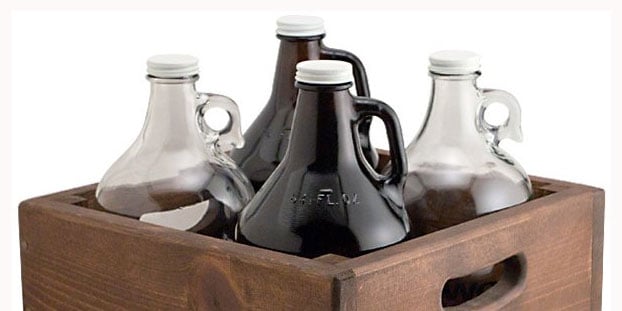
Over the summer, news broke that Surly Brewing Co. was found liable by a Minnesota court for violations of the state’s tip-pooling law. The brewery, which operates a large beer hall in Minneapolis, was accused by a former bartender of requiring staff to participate in an unlawful tip-pooling scheme. Under Minnesota law, employees are allowed to organize their own tip pools, but employers are not allowed to enforce tip-pooling or to control how it operates.
Navigating the federal and state wage laws applicable to the receipt of tips by service staff can be complicated. With taprooms becoming a more and more popular way of getting beer into customers’ hands, brewers need to be aware of the rules regarding tips and tip-pooling that apply to their bartenders and wait staff. Let’s use Massachusetts as an example, as every state is different. While Massachusetts does allow tip-pooling, employers have to meet certain requirements to stay in compliance.
Here’s what Massachusetts brewers need to know
- The basic rule: Tips belong to the employees who provided the service to the patron. The only exception is when the employer has instituted a valid tip pool, as described below.
 Minimum wage and tip credits: Tipped employees must always receive at least the minimum wage, which in Massachusetts is currently $11 per hour. Employers may pay tipped employees a minimum of $3.75 per hour and count tips earned as a “credit” toward meeting the minimum wage of $11.00 per hour. If the employee doesn’t make enough tips during a given workweek to earn at least the minimum wage for each hour worked, the employer must pay the difference.
Minimum wage and tip credits: Tipped employees must always receive at least the minimum wage, which in Massachusetts is currently $11 per hour. Employers may pay tipped employees a minimum of $3.75 per hour and count tips earned as a “credit” toward meeting the minimum wage of $11.00 per hour. If the employee doesn’t make enough tips during a given workweek to earn at least the minimum wage for each hour worked, the employer must pay the difference.- Tip pools: Massachusetts law allows employers to require tip-pooling or “tipping out” among their service staff, subject to two limitations. First, all employees subject to the tip pool must still receive at least the full minimum wage for each hour of their work. Second, only bona fide wait staff, service bartenders and other service employees may participate in the tip pool. This means that no portion of the tip pool may go to the employer itself, to staff with any managerial responsibility (including shift supervisors, maître d’s, etc.), to kitchen staff or any other “back-of-the-house” staff, or to any other employee who does not serve patrons directly.
- Service charges: In Massachusetts, when employers add a mandatory “service charge” to bills (for example, an 18 percent charge for large parties or private events), these charges are considered tips and must be distributed to the employee(s) who provided the service. Employers may charge a “house” or administrative fee, but only if the fee is clearly designated and the patron is informed that the charge is not a tip or service charge that will go to service staff. Make sure that any such charge is described in writing on your event contracts, invoices or bills.
Finally, be aware that Massachusetts is a strict enforcer of its wage laws: Employees who succeed in wage claims against their employers are entitled to recover triple the unpaid wages or tips owed to them, plus the cost of their attorneys’ fees in pursuing the claim. Aggrieved employees can bring lawsuits on behalf of classes of fellow employees subject to the same objectionable tip-pooling policies, which has led to many high-profile claims against local restaurants and some multi-million dollar judgments.
Tim Powell is an associate in Bowditch and Dewey’s Labor and Employment and Higher Education groups. He advises businesses, non-profit organizations, and higher education institutions on a broad range of employment matters. He represents clients in proceedings before state and federal courts and administrative agencies, including the Massachusetts Commission Against Discrimination, the Equal Employment Opportunity Commission, the Department of Labor and the Department of Education’s Office for Civil Rights, involving issues of discrimination and retaliation, wage-and-hour, non-competition and trade secrets.





Leave a Reply
You must be logged in to post a comment.